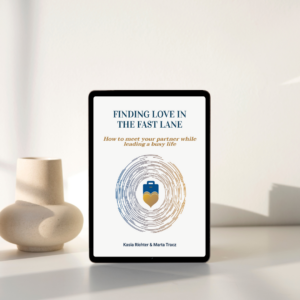Maintaining a healthy relationship is like walking a tightrope at times. One wrong move, and you could find yourself plummeting into the abyss of misunderstandings, hurt feelings, and discontent. But fret not! Finding balance in your romantic relationship is entirely achievable with the right mindset and strategies. Here’s a witty guide to harmonizing your connections, ensuring your love life remains as steady as a well-tuned orchestra.
How Can We Achieve Balance in Our Relationships?
What Are the Key Elements of a Balanced Relationship?
Achieving a balanced relationship starts with recognizing the fundamental elements that keep the scales even. Trust, mutual respect, and effective communication form the trifecta of harmony. Trust is essential; without it, you’re walking on eggshells. Mutual respect allows both partners to feel valued and appreciated. And communication? It’s the grease that keeps the wheels turning smoothly. Without these, a relationship means teetering on the brink of chaos. So, love your partner and cultivate these elements to keep the balance intact.
How Do You Identify Imbalance in a Relationship?
Spotting an unbalanced relationship is often easier said than done, especially if you’re deeply involved. But there are telltale signs — a constant feeling of overwhelm, frequent disagreements, or feeling undervalued. Look out for behavior that suggests one partner is contributing more than the other. When one person’s needs consistently overshadow the other’s, it’s a clear sign that the scales are tipping. If you’re feeling more drained than fulfilled, it’s time to reassess and restore equilibrium.
What Techniques Can Help Restore Balance?
You’ve identified imbalance; now what? Here are several techniques to help you restore balance. First, establish clear boundaries to ensure both partners’ needs are being met. Next, practice empathy — an unbalanced relationship often stems from a lack of understanding. Acknowledge your partner’s perspectives and feelings. Lastly, allocate quality time together. Overcoming this hurdle requires both emotional and physical presence. Don’t shy away from seeking professional help if needed; sometimes an outside perspective can work wonders.
How to Balance Work and Love Life Effectively?
Why is Finding Balance Between Work and Love Life Important?
Ah, the age-old conundrum: how to juggle a thriving career and a fulfilling love life? Finding balance between work and love life is pivotal for mental health and relationship satisfaction. A good equilibrium ensures both areas of your life receive the attention they need, preventing burnout and resentment. Ignoring your personal life for the sake of your career — or vice versa — leads to an unbalanced relationship, leaving both partners feeling neglected.
What Strategies Can Help in Balancing Work and Love Life?
Balancing work and love life requires strategic planning. Set aside dedicated time for your partner and stick to it religiously. Utilize technology to stay connected if you’re separated by long hours or distance. Be mindful of your work commitments but don’t let them consume your life. Prioritizing work is important, but so is investing in your relationship. Remember, a healthy balance between professional and personal commitments enriches both, allowing you to truly thrive in both spaces.
What Are the Signs of a Healthy Work-Life Balance in a Couple?
A healthy work-life balance in a couple is evidenced by enhanced intimacy, strong communication, and reduced stress. If you both feel fulfilled in your professional roles and simultaneously enjoy quality time together, you’re on the right track. Lessening arguments and feeling genuinely content around each other are positive indicators. Additionally, observing your partner’s mental health can be a clear sign — happy, well-adjusted individuals who are neither overwhelmed by work nor starved for affection often enjoy better balanced relationships.
What Communication Strategies Improve Relationship Balance?
How Can Open Communication Enhance a Romantic Relationship?
Open communication is like the oil that keeps the machinery of your romantic relationship running smoothly. Being candid about your feelings, desires, and frustrations helps mitigate misunderstandings. When you communicate openly, you build trust and intimacy. It’s crucial to approach conversations without judgment and be receptive to your partner’s viewpoints. This mutual openness reduces the likelihood of imbalance, fostering a climate where both partners feel heard and respected.
What Are Common Communication Barriers and How to Overcome Them?
Common communication barriers such as assuming, criticizing, and defensive behavior can derail even the best-intentioned interactions. Tackling these involves active listening and empathy. Don’t cut off your partner mid-sentence! Allow them space to express without interjecting. Overcome barriers by focusing on “I” statements rather than “You” accusations. This shifts the dialogue from blame to understanding, paving the way for healthier conversations and a more balanced relationship.
What Role Does Active Listening Play in Balanced Relationships?
Active listening is the unsung hero of balanced relationships. By genuinely tuning in to your partner and acknowledging their feelings, you foster a deeper connection. Active listening involves more than just hearing words — it requires understanding context, emotions, and underlying messages. This empathetic engagement strengthens the relationship bond, creating an environment where both partners feel valued and understood. So, put down your phone and truly listen; it’s a game-changer!
How Do We Maintain Balance During Conflicts?
What Are Effective Conflict Resolution Strategies for Couples?
Conflicts are inevitable, but they don’t need to disrupt the harmony in your relationship. Effective conflict resolution strategies include staying calm, expressing yourself clearly, and finding common ground. Avoid the blame game and focus on resolving the issue collaboratively. It’s okay to take a timeout if emotions run too high — cooling off can provide the clarity needed to address the problem rationally. Remember, the goal is resolution, not victory.
How Can Couples Communicate During Disagreements?
Communicating during disagreements can feel like tiptoeing through a minefield. Approach these conversations with a mindset of understanding rather than winning. Use “I feel” statements to articulate your emotions without sounding accusatory. Acknowledge your partner’s perspective and express a desire to find a solution that benefits both. Effective communication during disagreements fosters a healthier, more balanced relationship by preventing lingering resentment and misunderstandings.
How Important is Compromise in Maintaining Balance?
Compromise is the backbone of maintaining balance during conflicts. Relationships aren’t zero-sum games; sometimes you need to concede ground for the greater good. Compromise demonstrates empathy and investment in the relationship, reinforcing mutual respect. It’s important that both partners feel their needs are addressed, which isn’t possible if one always gives in. Aim for solutions that are acceptable to both, ensuring the relationship remains balanced and both partners feel valued.
What Role Does Self-Care Play in Maintaining Relationship Balance?
Why is Self-Care Important for a Balanced Relationship?
Self-care is often overlooked in the hustle to maintain relationships, but it’s essential for a balanced dynamic. When you neglect your own needs, you can’t fully invest in the relationship. Prioritizing self-care ensures that you’re mentally, emotionally, and physically prepared to contribute positively. A well-maintained you translates to a well-maintained relationship. Remember, a burnt-out person can’t perform effectively in any area of their life, relationships included.
How Can Taking Time for Yourself Benefit Your Romantic Relationship?
Taking time for yourself isn’t selfish; it’s a necessity. Personal downtime rejuvenates you, allowing you to engage more meaningfully with your partner. It gives you the space to reflect, regain your mental health, and come back to the relationship refreshed. In turn, this makes interactions more pleasant and reduces the chances of overwhelm. So, carve out that “me-time” without guilt; it’s ok to focus on your well-being for the sake of the relationship.
What Are Some Self-Care Practices to Improve Relationship Balance?
Engaging in self-care practices can significantly improve relationship balance. These activities might include regular exercise, meditation, hobbies, or simply time spent in solitude. Taking care of your physical health through activities like yoga or a simple morning run can boost your mood and energy levels. Mental self-care, such as journaling or therapy, helps in processing emotions. By investing in your well-being, you equip yourself better to nurture your romantic relationship.
In conclusion, maintaining a balanced relationship involves a mix of healthy boundaries, effective communication, self-care, and mutual respect. Whether you’re in a new relationship or have been together for years, these principles remain evergreen. Don’t forget, balance isn’t a one-time achievement; it’s an ongoing process. Embrace the journey, laugh at the struggles, and celebrate the successes. After all, life is too short for unbalanced relationships!








